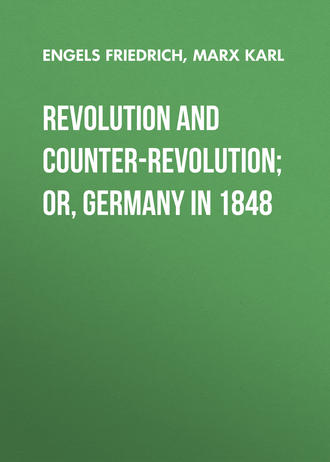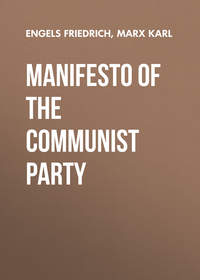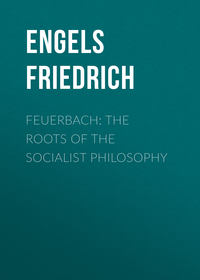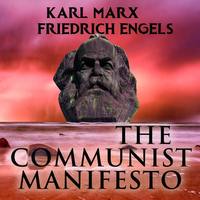 полная версия
полная версияRevolution and Counter-Revolution; Or, Germany in 1848
As to the Constitution proclaimed by the Emperor at the same time with the dissolution of the Diet, there is no need to revert to it, as it never had a practical existence, and is now done away with altogether. Absolutism has been restored in Austria to all intents and purposes ever since the 4th March, 1849.
In Prussia, the Chambers met in February for the ratification and revision of the new Charter proclaimed by the King. They sat for about six weeks, humble and meek enough in their behavior toward the Government, yet not quite prepared to go the lengths the King and his ministers wished them to go. Therefore, as soon as a suitable occasion presented itself, they were dissolved.
Thus both Austria and Prussia had for the moment got rid of the shackles of parliamentary control. The Governments now concentrated all power in themselves, and could bring that power to bear wherever is was wanted: Austria upon Hungary and Italy, Prussia upon Germany. For Prussia, too, was preparing for a campaign by which "order" was to be restored in the smaller States.
Counter-revolution being now paramount in the two great centres of action in Germany, – in Vienna and Berlin, – there remained only the lesser States in which the struggle was still undecided, although the balance there, too, was leaning more and more against the revolutionary interest. These smaller States, we have said, found a common centre in the National Assembly at Frankfort. Now, this so-called National Assembly, although its reactionist spirit had long been evident, so much so that the very people of Frankfort had risen in arms against it, yet its origin was of more or less revolutionary nature; it occupied an abnormal, revolutionary position in January; its competence had never been defined, and it had at last come to the decision – which, however, was never recognized by the larges States – that its resolutions had the force of law. Under these circumstances, and when the Constitutionalist-Monarchial party saw their positions turned by the recovering Absolutists, it is not to be wondered that the Liberal, monarchical bourgeoisie of almost the whole of Germany should place their last hopes upon the majority of this Assembly, just as the petty shopkeepers in the rest, the nucleus of the Democratic party, gathered in their growing distress around the minority of that same body, which indeed formed the last compact Parliamentary phalanx of Democracy. On the other hand, the larger Governments, and particularly the Prussian Ministry, saw more and more the incompatibility of such an irregular elective body with the restored monarchical system of Germany, and if they did not at once force its dissolution, it was only because the time had not yet come, and because Prussia hoped first to use it for the furthering of its own ambitious purposes.
In the meantime, that poor Assembly itself fell into a greater and greater confusion. Its deputations and commissaries had been treated with the utmost contempt, both in Vienna and Berlin; one of its members, in spite of his parliamentary inviolability, had been executed in Vienna as a common rebel. Its decrees were nowhere heeded; if they were noticed at all by the larger powers, it was merely by protesting notes which disputed the authority of the Assembly to pass laws and resolutions binding upon their Governments. The Representative of the Assembly, the Central Executive power, was involved in diplomatic squabbles with almost all the Cabinets of Germany, and, in spite of all their efforts, neither Assembly nor Central Government could bring Austria and Prussia to state their ultimate views, plans and demands. The Assembly, at last, commenced to see clearly, at least so far, that it had allowed all power to slip out of its hands, that it was at the mercy of Austria and Prussia, and that if it intended making a Federal Constitution for Germany at all, it must set about the thing at once and in good earnest. And many of the vacillating members also saw clearly that they had been egregiously duped by the Governments. But what were they, in their impotent position, able to do now? The only thing that could have saved them would have been promptly and decidedly to pass over into the popular camp; but the success, even of that step, was more than doubtful; and then, where in this helpless crowd of undecided, shortsighted, self-conceited beings, who, when the eternal noise of contradictory rumors and diplomatic notes completely stunned them, sought their only consolation and support in the everlastingly repeated assurance that they were the best, the greatest, the wisest men of the country, and that they alone could save Germany – where, we say, among these poor creatures, whom a single year of Parliamentary life had turned into complete idiots, where were the men for a prompt and decisive resolution, much less for energetic and consistent action?
At last the Austrian Government threw off the mask. In its Constitution of the 4th of March, it proclaimed Austria an indivisible monarchy, with common finances, system of customs-duties, of military establishments, thereby effacing every barrier and distinction between the German and non-German provinces. This declaration was made in the face of resolutions and articles of the intended Federal Constitution which had been already passed by the Frankfort Assembly. It was the gauntlet of war thrown down to it by Austria, and the poor Assembly had no other choice but to take it up. This it did with a deal of blustering, which Austria, in the consciousness of her power, and of the utter nothingness of the Assembly, could well afford to allow to pass. And this precious representation, as it styled itself, of the German people, in order to revenge itself for this insult on the part of Austria, saw nothing better before it than to throw itself, hands and feet tied, at the feet of the Prussian Government. Incredible as it would seem, it bent its knees before the very ministers whom it had condemned as unconstitutional and anti-popular, and whose dismissal it had in vain insisted upon. The details of this disgraceful transaction, and the tragicomical events that followed, will form the subject of our next.
London, April, 1852.
XV.
THE TRIUMPH OF PRUSSIA
July 27th, 1852.We now come to the last chapter in the history of the German Revolution; the conflict of the National Assembly with the Governments of the different States, especially of Prussia; the insurrection of Southern and Western Germany, and its final overthrow by Prussia.
We have already seen the Frankfort National Assembly at work. We have seen it kicked by Austria, insulted by Prussia, disobeyed by the lesser States, duped by its own impotent Central "Government," which again was the dupe of all and every prince in the country. But at last things began to look threatening for this weak, vacillating, insipid legislative body. It was forced to come to the conclusion that "the sublime idea of Germany unity was threatened in its realization," which meant neither more nor less than that the Frankfort Assembly, and all it had done, and was about to do, were very likely to end in smoke. Thus it set to work in good earnest in order to bring forth, as soon as possible, its grand production, the "Imperial Constitution." There was, however, one difficulty. What Executive Government was there to be? An Executive Council? No; that would have been, they thought in their wisdom, making Germany a Republic. A "president"? That would come to the same. Thus they must revive the old Imperial dignity. But – as, of course, a prince was to be emperor – who should it be? Certainly none of the Dii minorum gentium, from Reuss-Schleitz-Greitz-Lobenstein-Ebersdorf up to Bavaria; neither Austria nor Prussia would have borne that. It could only be Austria or Prussia. But which of the two? There is no doubt that, under otherwise favorable circumstances, this august Assembly would be sitting up to the present day, discussing this important dilemma without being able to come to a conclusion, if the Austrian Government had not cut the Gordian knot, and saved them the trouble.
Austria knew very well that from the moment in which she could again appear before Europe with all her provinces subdued, as a strong and great European power, the very law of political gravitation would draw the remainder of Germany into her orbit, without the help of any authority which an Imperial crown, conferred by the Frankfort Assembly, could give her. Austria had been far stronger, far freer in her movements, since she shook off the powerless crown of the German Empire – a crown which clogged her own independent policy, while it added not one iota to her strength, either within or without Germany. And supposing the case that Austria could not maintain her footing in Italy and Hungary, why, then she was dissolved, annihilated in Germany too, and could never pretend to reseize a crown which had slipped from her hands while she was in the full possession of her strength. Thus Austria at once declared against all imperialist resurrections, and plainly demanded the restoration of the German Diet, the only Central Government of Germany known and recognized by the treaties of 1815; and on the 4th of March, 1849, issued that Constitution which had no other meaning than to declare Austria an indivisible, centralized, and independent monarchy, distinct even from that Germany which the Frankfort Assembly was to reorganize.
This open declaration of war left, indeed, the Frankfort wiseacres no other choice but to exclude Austria from Germany, and to create out of the remainder of that country a sort of lower empire, a "little Germany," the rather shabby Imperial mantle of which was to fall on the shoulders of His Majesty of Prussia. This, it will be recollected, was the renewal of an old project fostered already some six or eight years ago by a party of South and Middle German Liberal doctrinaires, who considered as a godsend the degrading circumstances by which their old crotchet was now again brought forward as the latest "new move" for the salvation of the country.
They accordingly finished, in February and March, 1849, the debate on the Imperial Constitution, together with the Declaration of Rights and the Imperial Electoral Law; not, however, without being obliged to make, in a great many points, the most contradictory concessions – now to the Conservative or rather Reactionary party – now to the more advanced factions of the Assembly. In fact, it was evident that the leadership of the Assembly, which had formerly belonged to the Right and Right Centre (the Conservatives and Reactionists), was gradually, although slowly, passing toward the Left or Democratic side of that body. The rather dubious position of the Austrian deputies in an Assembly which had excluded their country from Germany, and in which they yet were called upon to sit and vote, favored the derangement of its equipoise; and thus, as early as the end of February, the Left Centre and Left found themselves, by the help of the Austrian votes, very generally in a majority, while on other days the Conservative faction of the Austrians, all of a sudden, and for the fun of the thing, voting with the Right, threw the balance again on the other side. They intended, by these sudden soubresauts, to bring the Assembly into contempt, which, however, was quite unnecessary, the mass of the people being long since convinced of the utter hollowness and futility of anything coming from Frankfort. What a specimen of a Constitution, in the meantime, was framed under such jumping and counter-jumping, may easily be imagined.
The Left of the Assembly – this élite and pride of revolutionary Germany, as it believed itself to be – was entirely intoxicated with the few paltry successes it obtained by the good-will, or rather the ill-will, of a set of Austrian politicians, acting under the instigation and for the interest of Austrian despotism. Whenever the slightest approximation to their own not very well-defined principles had, in a hom[oe]opathically diluted shape, obtained a sort of sanction by the Frankfort Assembly, these Democrats proclaimed that they had saved the country and the people. These poor, weak-minded men, during the course of their generally very obscure lives, had been so little accustomed to anything like success, that they actually believed their paltry amendments, passed with two or three votes majority, would change the face of Europe. They had, from the beginning of their legislative career, been more imbued than any other faction of the Assembly with that incurable malady Parliamentary crétinism, a disorder which penetrates its unfortunate victims with the solemn conviction that the whole world, its history and future, are governed and determined by a majority of votes in that particular representative body which has the honor to count them among its members, and that all and everything going on outside the walls of their house – wars, revolutions, railway-constructing, colonizing of whole new continents, California gold discoveries, Central American canals, Russian armies, and whatever else may have some little claim to influence upon the destinies of mankind – is nothing compared with the incommensurable events hinging upon the important question, whatever it may be, just at that moment occupying the attention of their honorable house. Thus it was the Democratic party of the Assembly, by effectually smuggling a few of their nostrums into the "Imperial Constitution," first became bound to support it, although in every essential point it flatly contradicted their own oft-proclaimed principles, and at last, when this mongrel work was abandoned, and bequeathed to them by its main authors, accepted the inheritance, and held out for this Monarchical Constitution, even in opposition to everybody who then proclaimed their own Republican principles.
But it must be confessed that in this the contradiction was merely apparent. The indeterminate, self-contradictory, immature character of the Imperial Constitution was the very image of the immature, confused, conflicting political ideas of these Democratic gentlemen. And if their own sayings and writings – as far as they could write – were not sufficient proof of this, their actions would furnish such proof; for among sensible people it is a matter of course to judge of a man, not by his professions, but his actions; not by what he pretends to be, but by what he does, and what he really is; and the deeds of these heroes of German Democracy speak loud enough for themselves, as we shall learn by and by. However, the Imperial Constitution, with all its appendages and paraphernalia, was definitely passed, and on the 28th of March, the King of Prussia was, by 290 votes against 248 who abstained, and 200 who were absent, elected Emperor of Germany minus Austria. The historical irony was complete; the Imperial farce executed in the streets of astonished Berlin, three days after the Revolution of March 18th, 1848, by Frederick William IV., while in a state which elsewhere would come under the Maine Liquor Law – this disgusting farce, just one year afterwards, had been sanctioned by the pretended Representative Assembly of all Germany. That, then, was the result of the German Revolution!
London, July, 1852.
XVI.
THE ASSEMBLY AND THE GOVERNMENTS
August 19th, 1852.The National Assembly of Frankfort, after having elected the King of Prussia Emperor of Germany (minus Austria), sent a deputation to Berlin to offer him the crown, and then adjourned. On the 3rd of April, Frederick William received the deputies. He told them that, although he accepted the right of precedence over all the other princes of Germany, which this vote of the people's representatives had given him, yet he could not accept the Imperial crown as long as he was not sure that the remaining princes acknowledged his supremacy, and the Imperial Constitution conferring those rights upon him. It would be, he added, for the Governments of Germany to see whether this Constitution was such as could be ratified by them. At all events, Emperor or not, he always would be found ready, he concluded, to draw the sword against either the external or the internal foe. We shall see how he kept his promise in a manner rather startling for the National Assembly.
The Frankfort wiseacres, after profound diplomatic inquiry, at last came to the conclusion that this answer amounted to a refusal of the crown. They then (April 12th) resolved: That the Imperial Constitution was the law of the land, and must be maintained; and not seeing their way at all before them, elected a Committee of thirty, to make proposals as to the means how this Constitution could be carried out.
This resolution was the signal for the conflict between the Frankfort Assembly and the German Governments which now broke out. The middle classes, and especially the smaller trading class, had all at once declared for the new Frankfort Constitution. They could not wait any longer the moment which was "to close the Revolution." In Austria and Prussia the Revolution had, for the moment, been closed by the interference of the armed power. The classes in question would have preferred a less forcible mode of performing that operation, but they had not had a chance; the thing was done, and they had to make the best of it, a resolution which they at once took and carried out most heroically. In the smaller States, where things had been going on comparatively smoothly, the middle classes had long since been thrown back into that showy, but resultless, because powerless, parliamentary agitation, which was most congenial to themselves. The different States of Germany, as regarded each of them separately, appeared thus to have attained that new and definite form which was supposed to enable them to enter henceforth the path of peaceful constitutional development. There only remained one open question, that of the new political organization of the German Confederacy. And this question, the only one which still appeared fraught with danger, it was considered a necessity to resolve at once. Hence the pressure exerted upon the Frankfort Assembly by the middle classes, in order to induce it to get the Constitution ready as soon as possible; hence the resolution among the higher and lower bourgeoisie to accept and support this Constitution, whatever it might be, in order to create a settled state of things without delay. Thus from the very beginning the agitation for the Imperial Constitution arose out of a reactionary feeling, and sprang up among these classes which were long since tired of the Revolution.
But there was another feature in it. The first and fundamental principles of the future German Constitution had been voted during the first months of spring and summer, 1848, a time when popular agitation was still rife. The resolutions then passed, though completely reactionary then, now, after the arbitrary acts of the Austrian and Prussian Governments, appeared exceedingly Liberal, and even Democratic. The standard of comparison had changed. The Frankfort Assembly could not, without moral suicide, strike out these once-voted provisions, and model the Imperial Constitution upon those which the Austrian and Prussian Governments had dictated, sword in hand. Besides, as we have seen, the majority in that Assembly had changed sides, and the Liberal and Democratic party were rising in influence. Thus the Imperial Constitution not only was distinguished by its apparently exclusive popular origin, but at the same time, full of contradiction as it was, it yet was the most Liberal Constitution in all Germany. Its greatest fault was, that it was a mere sheet of paper, with no power to back its provisions.
Under these circumstances it was natural that the so-called Democratic party, that is, the mass of the petty trading class, should cling to the Imperial Constitution. This class had always been more forward in its demands than the Liberal-Monarchico-Constitutional bourgeoisie; it had shown a bolder front, it had very often threatened armed resistance, it was lavish in its promises to sacrifice its blood and its existence in the struggle for freedom; but it had already given plenty of proofs that on the day of danger it was nowhere, and that it never felt more comfortable than the day after a decisive defeat, when everything being lost, it had at least the consolation to know that somehow or other the matter was settled. While, therefore, the adhesion of the large bankers, manufacturers, and merchants was of a more reserved character, more like a simple demonstration in favor of the Frankfort Constitution, the class just beneath them, our valiant Democratic shopkeepers, came forward in grand style, and, as usual, proclaimed they would rather spill their last drop of blood than let the Imperial Constitution fall to the ground.
Supported by these two parties, the bourgeois adherents of the Constitutional Royalty, and the more or less Democratic shopkeepers, the agitation for the immediate establishment of the Imperial Constitution gained ground rapidly, and found its most powerful expression in the Parliaments of the several States. The Chambers of Prussia, of Hanover, of Saxony, of Baden, of Würtemberg, declared in its favor. The struggle between the Governments and the Frankfort Assembly assumed a threatening aspect.
The Governments, however, acted rapidly. The Prussian Chambers were dissolved, anti-constitutionally, as they had to revise and confirm the Constitution; riots broke out at Berlin, provoked intentionally by the Government, and the next day, the 28th of April, the Prussian Ministry issued a circular note, in which the Imperial Constitution was held up as a most anarchical and revolutionary document, which it was for the Governments of Germany to remodel and purify. Thus Prussia denied, point-blank, that sovereign constituent power which the wise men at Frankfort had always boasted of, but never established. Thus a Congress of Princes, a renewal of the old Federal Diet, was called upon to sit in judgment on that Constitution which had already been promulgated as law. And at the same time Prussia concentrated troops at Kreuznach, three days' march from Frankfort, and called upon the smaller States to follow its example, by also dissolving their Chambers as soon as they should give their adhesion to the Frankfort Assembly. This example was speedily followed by Hanover and Saxony.
It was evident that a decision of the struggle by force of arms could not be avoided. The hostility of the Governments, the agitation among the people, were daily showing themselves in stronger colors. The military were everywhere worked upon by the Democratic citizens, and in the south of Germany with great success. Large mass meetings were everywhere held, passing resolutions to support the Imperial Constitution and the National Assembly, if need should be, with force of arms. At Cologne, a meeting of deputies of all the municipal councils of Rhenish Prussia took place for the same purpose. In the Palatinate, at Bergen, Fulda, Nuremberg, in the Odenwald, the peasantry met by myriads and worked themselves up into enthusiasm. At the same time the Constituent Assembly of France dissolved, and the new elections were prepared amid violent agitation, while on the eastern frontier of Germany, the Hungarians had within a month, by a succession of brilliant victories, rolled back the tide of Austrian invasion from the Theiss to the Leitha, and were every day expected to take Vienna by storm. Thus, popular imagination being on all hands worked up to the highest pitch, and the aggressive policy of the Governments defining itself more clearly every day, a violent collision could not be avoided, and cowardly imbecility only could persuade itself that the struggle was to come off peaceably. But this cowardly imbecility was most extensively represented in the Frankfort Assembly.
London, July, 1852.
XVII.
INSURRECTION
September 18, 1852.The inevitable conflict between the National Assembly of Frankfort and the States Governments of Germany at last broke out in open hostilities during the first days of May, 1849. The Austrian deputies, recalled by their Government, had already left the Assembly and returned home, with the exception of a few members of the Left or Democratic party. The great body of the Conservative members, aware of the turn things were about to take, withdrew even before they were called upon to do so by their respective Governments. Thus, even independently of the causes which in the foregoing letters have been shown to strengthen the influence of the Left, the mere desertion of their posts by the members of the Right, sufficed to turn the old minority into a majority of the Assembly. The new majority, which, at no former time, had dreamed of ever obtaining that good fortune, had profited by their places on the opposition benches to spout against the weakness, the indecision, the indolence of the old majority, and of its Imperial Lieutenancy. Now all at once, they were called on to replace that old majority. They were now to show what they could perform. Of course, their career was to be one of energy, determination, activity. They, the élite of Germany, would soon be able to drive onwards the senile Lieutenant of the Empire, and his vacillating ministers, and in case that was impossible they would – there could be no doubt about it – by force of the sovereign right of the people, depose that impotent Government, and replace it by an energetic, indefatigable Executive, who would assure the salvation of Germany. Poor fellows! Their rule – if rule it can be named, where no one obeyed – was a still more ridiculous affair than even the rule of their predecessors.






